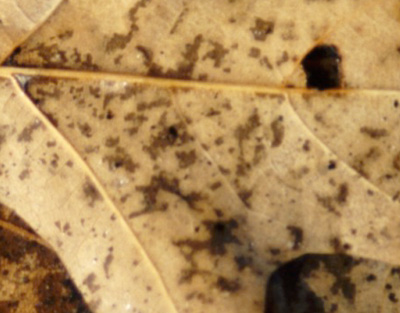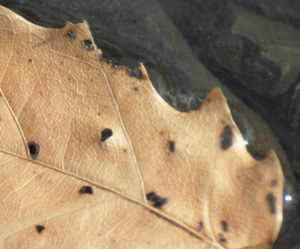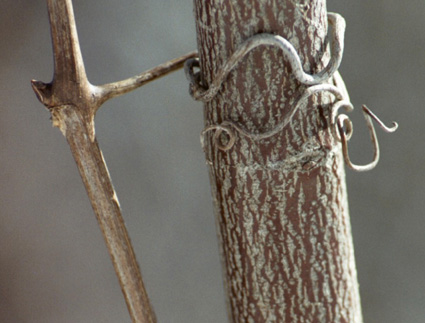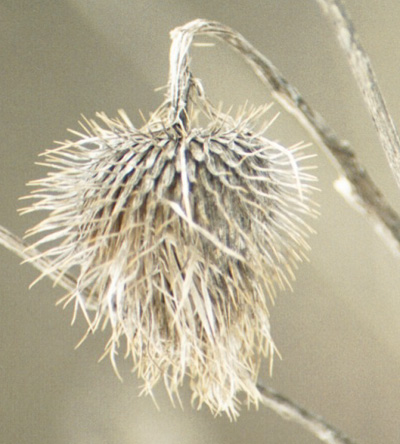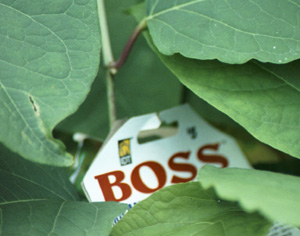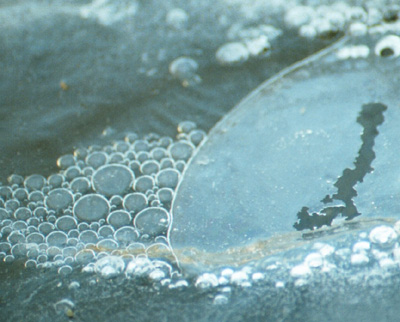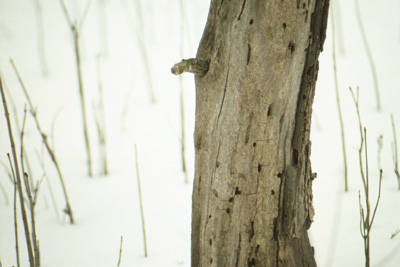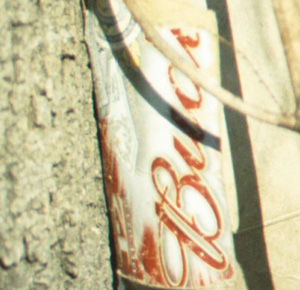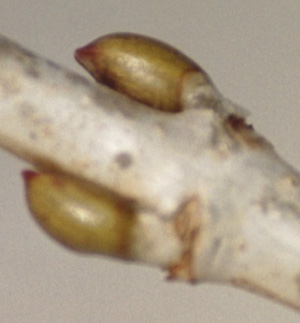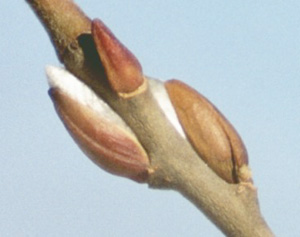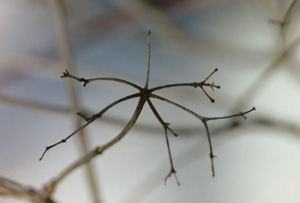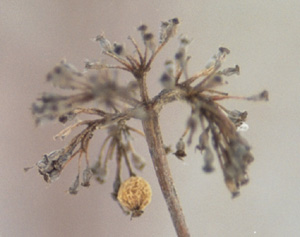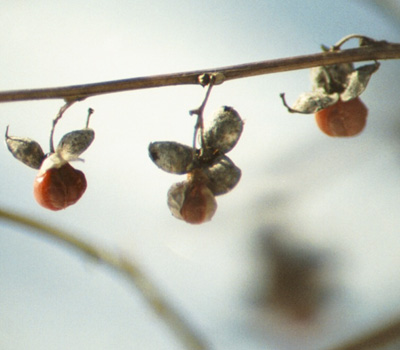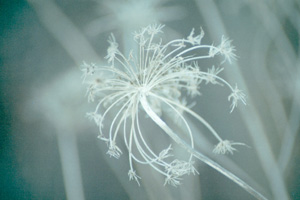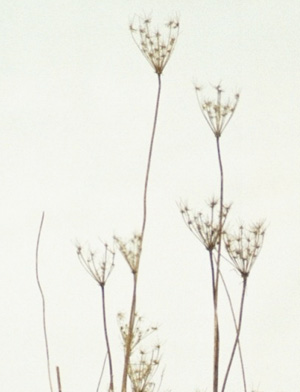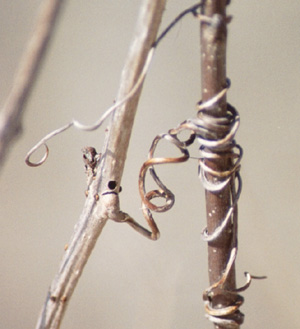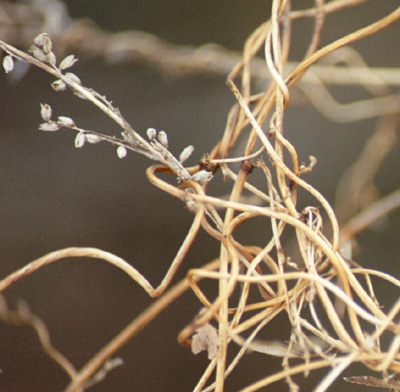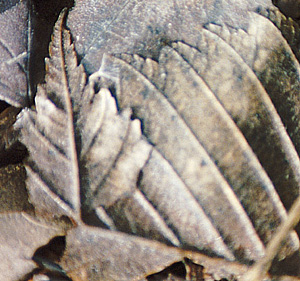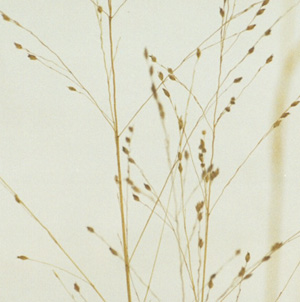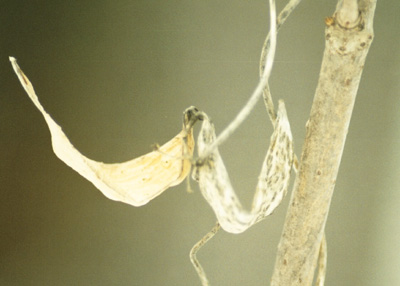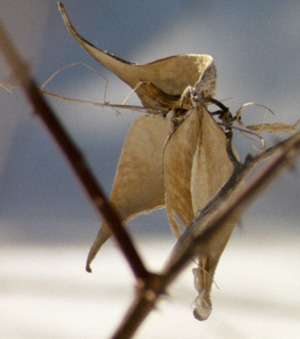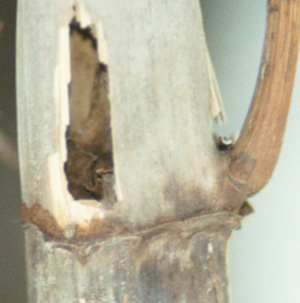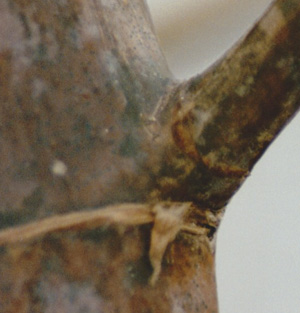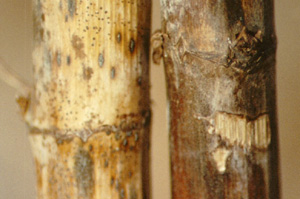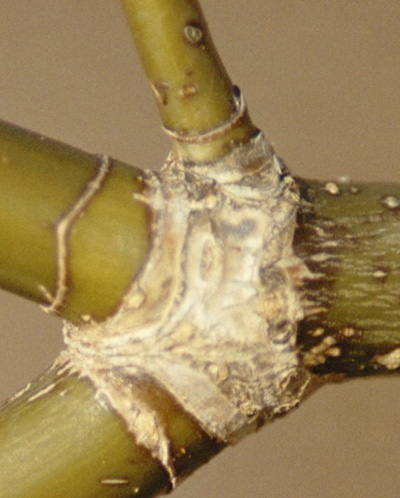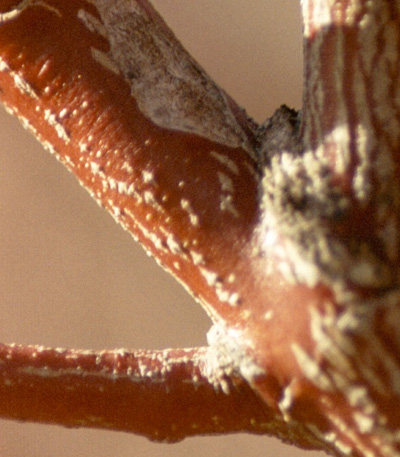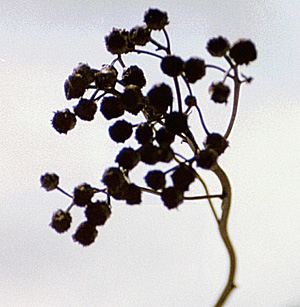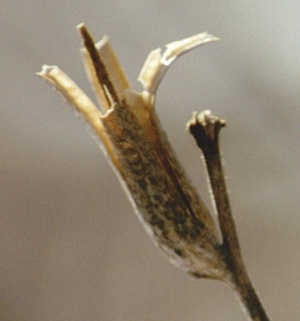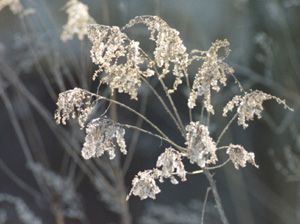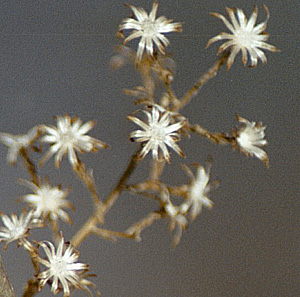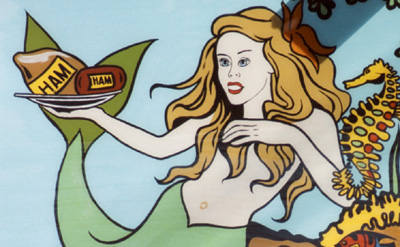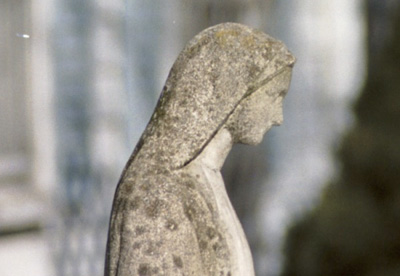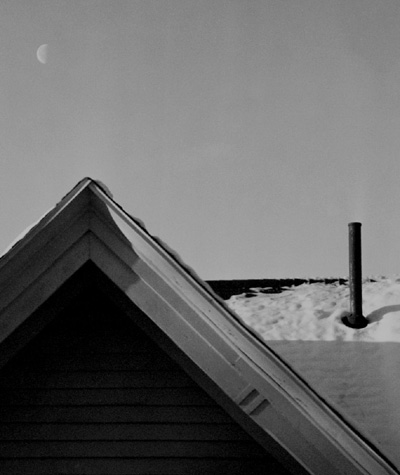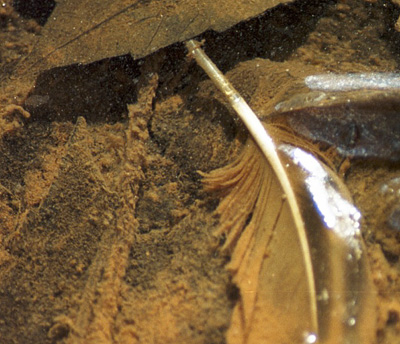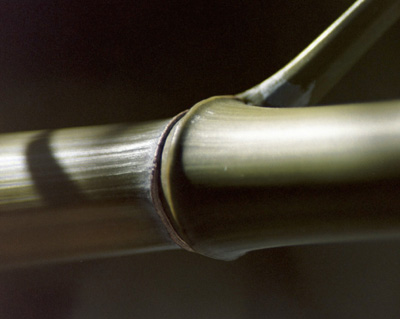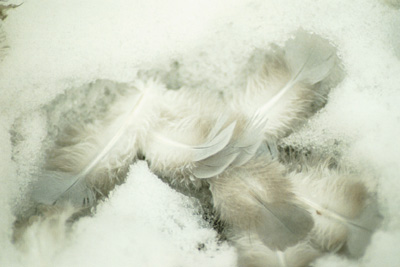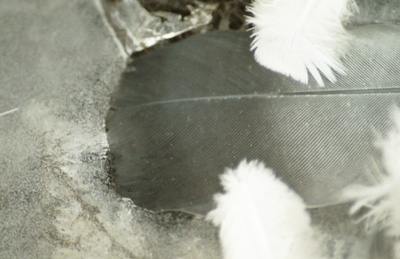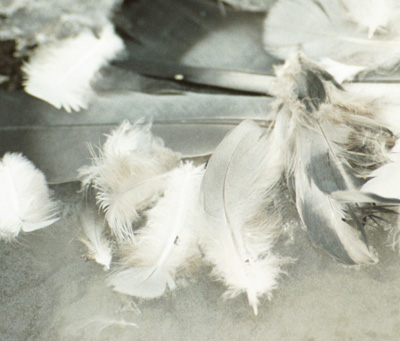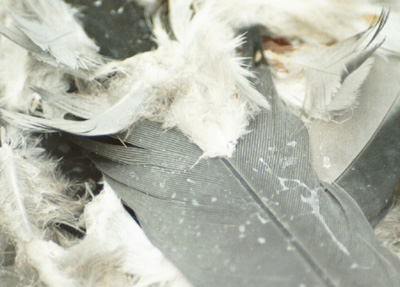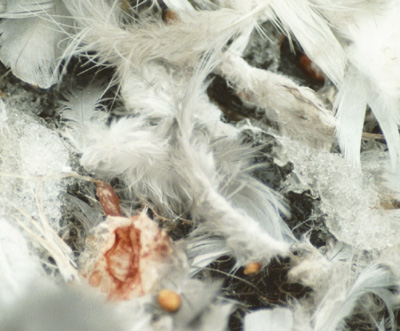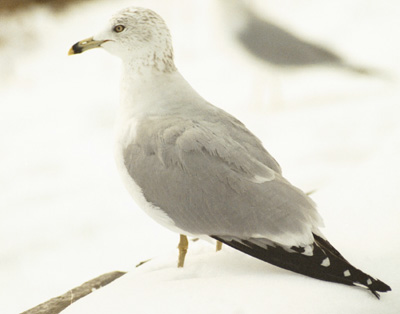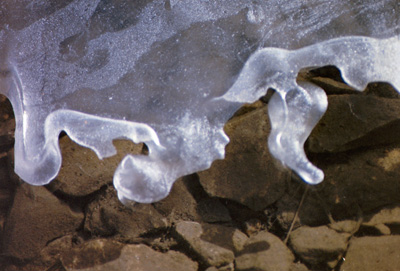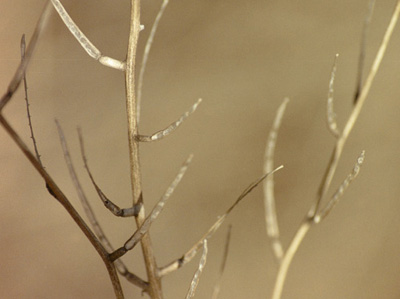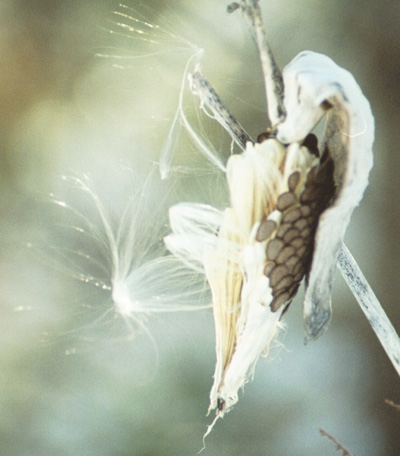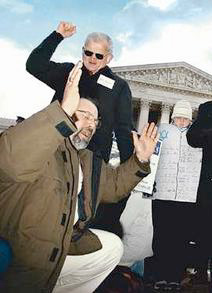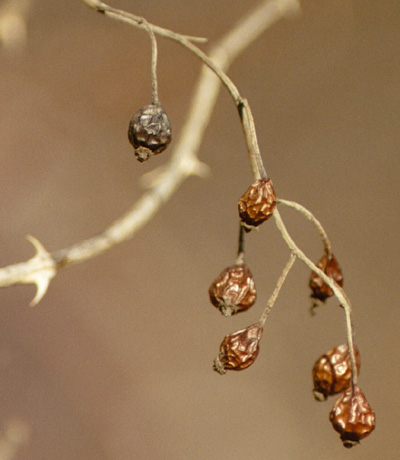Don't get me wrong -- I like Arnold, our money guy. He even inspired me to write a poem, once, back when I did such things.
How Arnold Says Dollars
When Arnold tells us how to husband dollars
there is a prolongation, voluptous,
at the double L, as if his tongue
were drilling into pulp, or working
the extent and circumference of something
that exacts his diligence, something,
maybe cud, that has hectored and rehectored
up out of a string of glistening stomachs,
something more pal than lover, more
fiche than ghazal. Beside this labial
the ars sags, forlorn, and do ’s udderless
solfeggio reminds me of how spiritual
lolls in the mouths of certain preachers,
the same pap, expressed from the same pap.
12.17.97
But I find myself bristling, more and more, at the unquestioned assumption that it is my civic duty -- akin to paying taxes to finance things that enhance and support the common good -- to have expertise in and an eagerness to participate in capitalism. The President wants to change the whole vocabulary of financial obligations, replacing "common good" and "pay taxes" with phrases like "investor class" and "ownership society." Which basically means I get the privilege of paying fully for, and thus "owning" my health insurance. Rather than having my employer contribute. Or, dieu forfend, my government, with the dollars I have given it in taxes.
So rather than giving our dollars to a beneficent government dedicated to sustaining the common welfare -- infrastructure, security, health, education, environment -- we give our dollars to corporations, particles of which we then "own," and the corporations, in turn, amass profits whose benefits, at least in theory, somehow trickle into the economy and benefit the common good. According to the President's worldview we have an obligation to understand and participate in this byzantine, middleman-larded, greed-and-corruption infested system of gambling and risk, and to base the financial stability of our communities and our personal elder years upon it.
The idea that my retirement should be heavily contingent on what transpires on stockmarket floor -- on all those lean and hungry, well-dressed, greedy screaming men and women -- alarms me. But it is. I know it is. We have actually given Arnold some dollars and he has invested them. We have accumulated what's known in financial circles as a "laughably paltry stash." When I read those columns in the business pages when investors decades younger than me write in to financial mavens with questions about their retirement investments I feel vaguely uneasy. You know, "Dear Mr. Dollars. We currently have three bazillion dollars in the Hobblegobble Fund, and seven trillion in Mutual Froot Loops. Is this enough ? Signed, Worried." "Dear Worried, Omigod you are absolutely right to worry. In fact, you should panic. I recommend you immediately invest 89.7% of your weekly salary in Hallibutenron Futures lest you die impoverished, alone and in existential anguish."
So I have, over the decades, taken a marginal, primitive interest in capitalism. I have learned that the number of our invested dollars fluctuates with something called the DOW. Which is not to be mistaken for the TAO. I have become interested in the DOW. When I click on the CNN homepage to get headlines through the day, I'll often peek at the DOW. Sometimes those headlines seem to have affected the DOW. Oddly enough, natural disasters seem to make it go up, as if they fueled some strange, mercantile exuberance among those excited young men and women on the floor of the stock exchange. The periodic encyclicals of Greenspan, the Pope of Dollars, seem also greatly to influence it. Mostly it seems to be prone to arbitrary nervous oscillations. In the medical field we call this having "the vapors."
I had, briefly, a pension plan at work. An old fashioned pension, like Ward Cleaver probably had. Like so-called pensioners have. I was excited. I would no longer have to live out my senescence in a cardboard box on the heating grates behind the Boston Public Library. Periodically documents came to my home regarding this pension. Full of inscrutable formulas and admonitions. It was reassuring. I pictured grave men in suits -- portly, honest, serious, boring men with cigars -- presiding over the pension fund. Filling it with the stodgiest and stolidest of bonds. Nurturing it. Coddling it. Protecting it. I was all set. All would be well. Plus the Social Security Administration began to send periodic documents tallying up what monthly benefits I'd accrue if, as the phrase goes, "I should live so long." My little hamster brain -- the part of me that's nervously obsessed with dollars -- did its busy little math and felt reassured. All would indeed be well.
Then, several years ago, our organization retired our retirement pension and switched to a DOW-related entity with a curiously cyborgian name: 401K. The pension dollars, though, would stay put. Elsewhere. In seclusion. Until I retired. I asked last year how much of this old pension money I had accumulated. I was told this must remain a secret until I retire. "But, but !" I argued, cogently. "Nay, nay," they replied. It would COST the fund too much to obtain this figure. This is, apparantly, another feature of Bushian "ownership" -- it's virtual. And secret.
401K, of course, is prone to the same vapors as the DOW. And now Mr Bush would like infest Social Security with the same wrist-applied-to-the-forehead tendency to swoon as afflicts my own DOW-based "laughably paltry stash."
In fact he's crisscrossing the country (junkets payed for by our TAX dollars) to host information sessions about his plan -- events from which taxpaying and ticket-bearing folks with lefty bumperstickers, tee shirts or reputations are reportedly being excluded.
Lilies of the field. Birds of the air.
I keep reminding myself.
